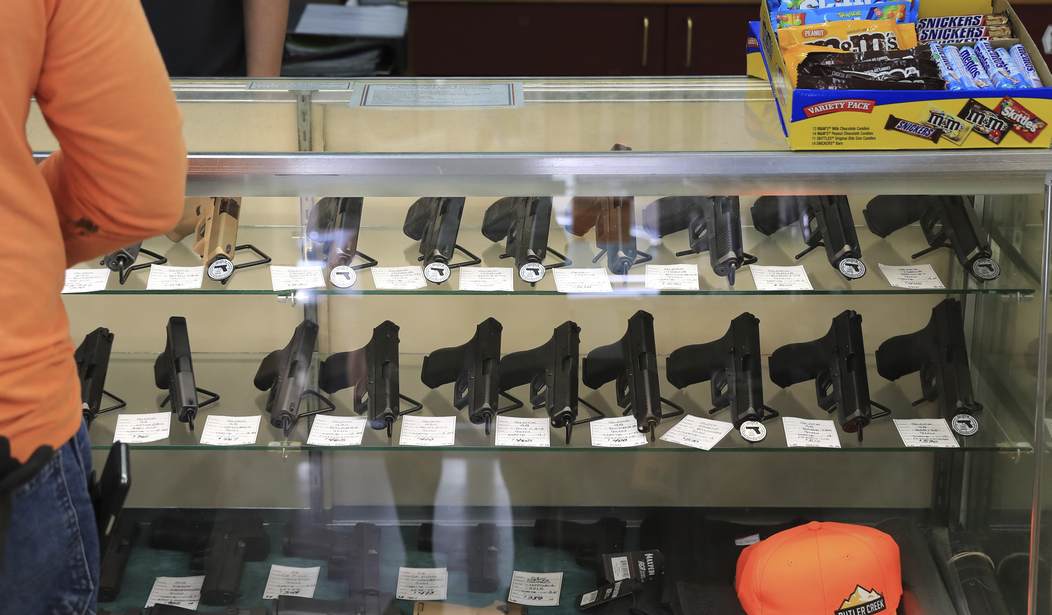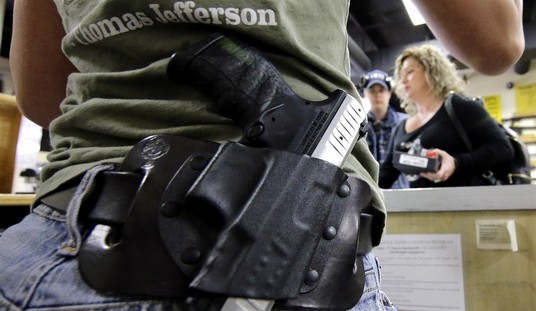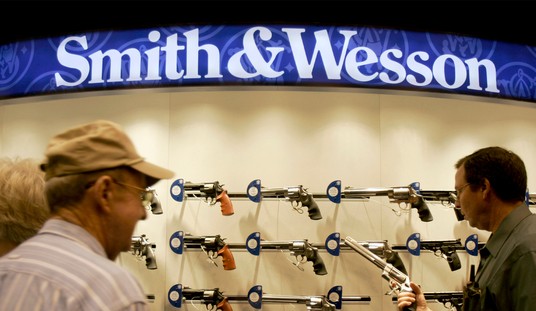California's "1-in-30" gun rationing law was under the Ninth Circuit's microscope on Wednesday afternoon, and the CalDOJ attorney tasked with defending the law seemed to struggle to find an argument in favor of limiting handgun purchases to one per 30 days that would connect with the three judges tasked with deciding the law's constitutionality.
Jerry Wen, representing Attorney General Rob Bonta, first claimed that the reason for the gun rationing law was to "disrupt" gun trafficking and straw purchasing, but when Judge Bridget Bade asked if the state had any evidence that a 30-day wait between purchases actually does prevent illegal trafficking, Wen could only cite unnamed "some studies" and point to the fact that other states had previously adopted one-gun-a-month statutes.
Wen then tried to argue that the right to purchase a firearm isn't protected in the text of the Second Amendment, but conceded that the Ninth Circuit has already concluded the right to purchase a firearm is an "ancillary" right. After all, if you don't have the right to acquire a firearm, then you can't keep or bear it.
Judge Bade asks California why it chose 30 days. Judge Forrest asks if a year would be unconstitutional. The state says it would be more likely to be unconstitutional.
— Firearms Policy Coalition (@gunpolicy) August 14, 2024
Judge Danielle Forrest wondered if someone doesn't own any firearms, and it's impossible for them to legally purchase more than one at a time, how their core Second Amendment right to possess arms for self-defense wouldn't be implicated if they, for instance, wanted to have a gun in their primary residence and a vacation home, or one for their home and another for their business.
Wen's response was that the individual in question could "borrow" a firearm until they were allowed under California law to purchase another; a circumstance that could only take place if the individual a) knows someone else who owns a handgun and b) is willing to part with it, even temporarily.
Interestingly, Wen also suggested that while 30 days isn't too long to wait, asking gun owners to twiddle their thumbs for a year would be more likely to be unconstitutional. Given that some counties in California are taking a year or more to process concealed carry applications, Wen's comments will be very helpful to the attorneys litigating the lengthy delays in issuing carry permits.
Throughout Wen's time before the panel, both Bade and Forrest seemed very skeptical of the government's stance that limiting gun purchases to one every thirty days isn't an imposition or infringement on the Second Amendment.
California compares the law to ones that ban drunk people from having guns. Judge Bade says that's not similar because being drunk doesn't last 30 days
— Firearms Policy Coalition (@gunpolicy) August 14, 2024
To be fair, there really aren't a lot of good arguments that Wen could have deployed to urge California's law be upheld. He may very well be a capable attorney tasked with defending the indefensible, but I think the attorney for the Firearms Policy Coalition and the plaintiffs challenging the "1-in-30" law had a much better day in court, and it looks like FPC concurs.
Tough day for the State during oral arguments in our Nguyen v. Bonta CA “1-in-30” Firearms Ban Lawsuit at the 9th Circuit today.
— Firearms Policy Coalition (@gunpolicy) August 14, 2024
Just the way we like it. pic.twitter.com/x3x8i5DHfX
Brutal, but not inaccurate.
You can check out the oral arguments for yourself in the video window below. Based on the judges' questions, I think FPC is almost certainly going to prevail in Nguyen v .Bonta, at least before this panel. What an en banc panel of Ninth Circuit judges may do after that is an open question, but today was a very good day for Second Amendment advocates... and one that Jerry Wen will probably try very hard to put behind him as quickly as possible.









Join the conversation as a VIP Member